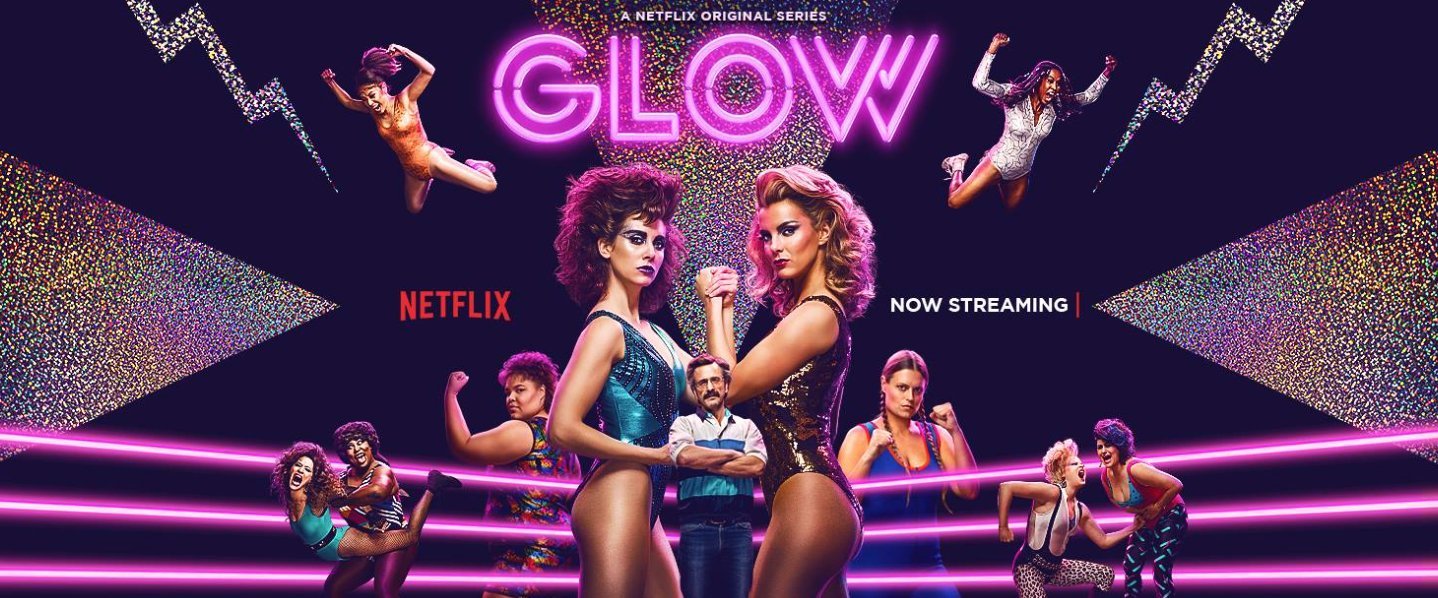Review: How Season 2 of Netflix's GLOW Wrestles the Patriarchy

WARNING: This article contains season 2 spoilers (so go binge the show first!)
Netflix's GLOW, loosely based on the 80s show Gorgeous Ladies of Wrestling, released its second season at the end of June. If you haven't checked out the show yet, I highly recommend it. With just ten 30-minute episodes in each season, you can binge the show in no time.
Created by Liz Flahive and Carly Mensch, GLOW follows an eclectic group of women learning how to wrestle and figure out their personal lives. Season two takes what the first season established and heightens it. This season brings double the character growth, creativity, and plot development. While season one stayed centered on Ruth (Alison Brie) and Debbie's (Betty Gilpin) feud, the second season branches out to give other characters more backstory and growth.
To me, the overarching theme of season 2 is family and the lengths we're willing to go to for them. We get a look at Sam (Marc Maron) and Justine's (Britt Baron) father-daughter relationship and how Sam navigates the new territory of being a father and a responsible figure in Justine's life. In episode 4 in particular, we see an excellent crosscut episode between Debbie and Tammé (Kia Stevens) as they juggle their job with raising and supporting their sons as single mothers. The theme of family also comes into play with the women on the show. The group goes from strangers, to literally holding their teammates up in the ring, to staying up all night in hospitals for each other. They become a family and look out for one another in the ring and off screen.
This season also focuses on the mistreatment of women in the film industry. It brings the 80s-set show into present day by echoing the #MeToo movement. In episode 5, Ruth is trapped in a bungalow with the network head and is basically promised a career advancement if she sleeps with him. She turns him down and when she confides in Debbie, is accused of causing the cancelation of their show. Debbie lets out her anger at Ruth for sleeping with her husband by saying, "the one time you keep your legs shut, we all get fed." Debbie's outrage with Ruth and her unsupportive attitude shed light on the difference between the expected behavior for women then and the movement that's happening now. Women had to "play the game," making compromises to further their careers and look out for themselves, whereas now, with the #MeToo movement, women are supporting each other and raising each other up to tell their stories and be heard. It's a harrowing episode that holds a mirror to the long-time-accepted culture within this industry and gives us an example of the passive participants who've helped the sexual harassment and assault survive for this long.
We also get a look at how women working behind the camera weren't taken seriously. Early on in the season, Debbie makes a career move and becomes a producer on the show in addition to acting on it. She is laughed at by the other producer, Bash, (Chris Lowell) and the director, Sam, and treated with disrespect. They don't inform her of decisions and leave her out of meetings, not taking her seriously as a producer. Debbie, however, doesn't let their rejections and chauvinism stop her and continues to make herself valuable as a producer and come up with ideas to make the show successful.
GLOW manages to hold onto its comedic elements while still shedding light on important issues. It's light-hearted, yet heartfelt, delivering content that inspires and depicts women for what they are: strong.
IMAGE Courtesy of: GLOW Netflix Official Facebook page
Reader Reviews

Videos


